TIZ 4. Slumil K’ajxemk’op (Rebel Land)
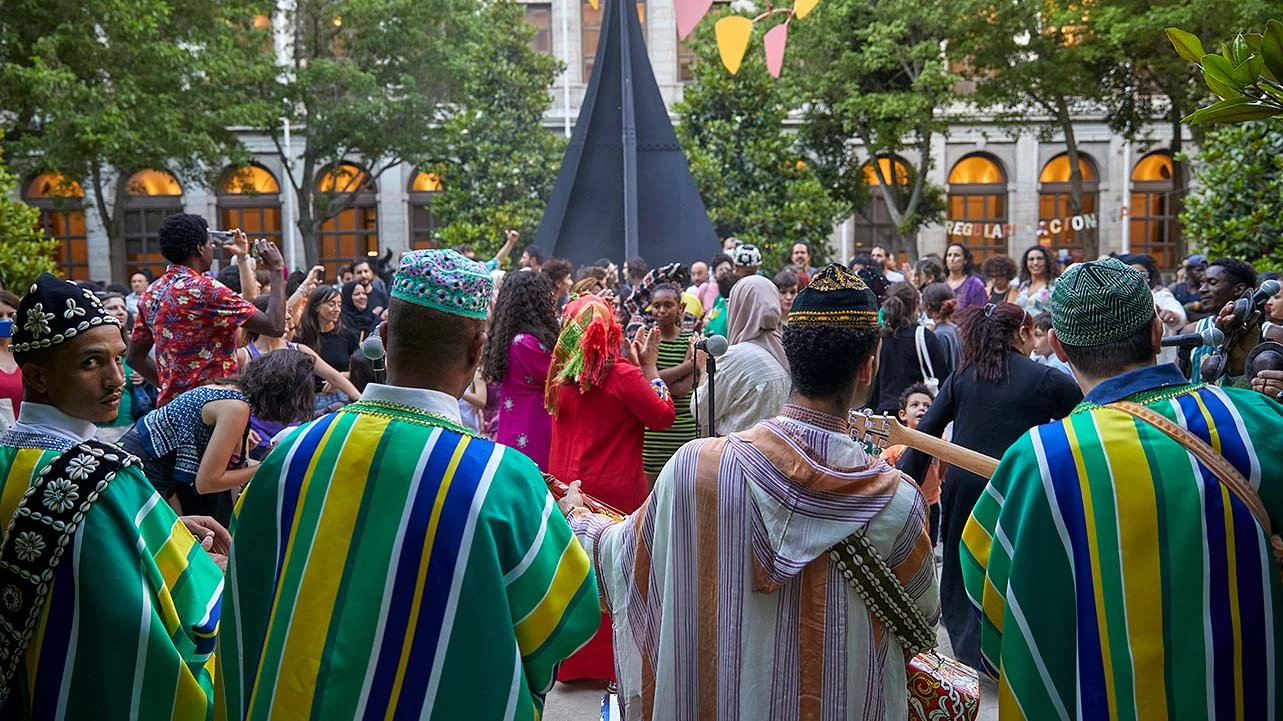
Held on 01, 02, 03, 04, 05, 06, 07, 08, 09, 10, 11, 12, 13, 14, 15, 16, 17, 18, 19, 20, 21, 22, 23, 24, 25, 26, 27, 28, 29, 30 Jun 2022
Slumil K’ajxemk’op — which means “rebel land” in Tzotzil, a Mayan dialect — is how the Zapatista delegation renamed Europe during its visit to the continent in 2021. A gift for being aware of and recognising ourselves as part of another Europe “abducted” from itself, and which invites us to reinvent our ties to the past in an emancipatory mode of expression, to the point of returning our otherness to us: the non-suppressed condition. It is a shard of glass in the fissure of selves, in the shadows of identities and commands, between fragments of experiences, spaces and languages. Slumil K’ajxemk’op arrived by boat, slowly, off time, amid a global pandemic, challenging the global logics of control over resources and bodies. It arrived negotiating borders and norms, learning other forms of encounter and relationships with otherness that is also us; a journey towards diaspora which still inhabits and unsettles us, beyond the colours and words we recall and forget how they also constitute us.
The Museo accepts this gift by organising a fourth Temporary Intensity Zone (TIZ) with a decolonial subject, through which figures and practices from the Global South converse. Thus, the programme welcomes Grupo Cultural Yuyachkani, which participates in the Aníbal Quijano Chair on decolonial thought — directed by Rita Segato and Elisa Fuenzalida — and in the Expanded Theatricalities Chair — directed by ARTEA — to engage in dialogue and reflect on the knowledge of bodies, the collective memory of their struggles and suffering, and their calls for a feminist emancipatory epistemology. By the same token, the Museo organises other activities and encounters interwoven through neighbourhoods, migrant tongues, festivals, meetings and picnics.
-
Friday, 3 June 2022 Nouvel Building, Auditorium 400
Los Voluble
’92 Ends it All
TicketsIn 1992, Spain’s institutions wanted to be modern but without shaking off the imperial past they commemorated. To fund the Barcelona Olympics and Expo ’92 in Seville, the country incurred a debt of 180 million euros with European banks, foreshadowing States’ loss of autonomy to the financial sector. Around this time, the experimental duo Los Voluble put forward an audiovisual and sound exploration which reflected on 1992 and its implications in Spain’s cultural, social and political sphere, drawing from archive material, electronic music and live cinema.
Curator: José Luis Espejo and Jesús Jara
Organised by: Museo Reina Sofía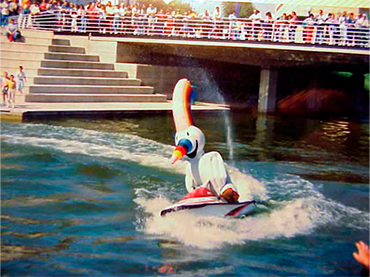
-
Saturday, 4 June 2022 Sabatini Building, main entrance and Garden
Neighbourhood Picnic
Walking Together to Make a Commons
The Neighbourhood Picnic is the chance for Lavapiés (Madrid) residents to come together in the Museo’s Garden, a place for everyone and part of the daily life of the neighbourhood in which it is situated. This year, the struggles and protests of different collectives that make up the Museo Situado network are the focus, and the aim is to grant visibility to three campaigns: #Esenciales* #RegularizacionYa (#Essential* #RegularisationNow), #Ratificacion189Ya (#Ratification189Now) and #StopExclusionSanitaria (#StopHealthExclusion).
Organised by: Museo Situado
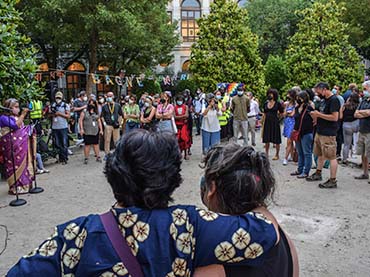
-
Thursday, 16 June 2022 Nouvel Building, Protocol Room and online platform
Situated Voices 24
Between Dreams and Deceits: Trafficking as a Form of Slavery in the 21st Century
TicketsAfter Russia’s invasion of Ukraine, the forced migration of millions of people has once again become a pressing issue that reignites the debate around human trafficking — one of the 21st century’s recurring forms of slavery — and the situations that cause it. This edition of Situated Voices turns its attentions to the urgent need to create public policies that detect, support and protect people being trafficked, suggesting the need to place this vulnerability above any immigration laws and other types of legislation.
Organised by: GRIGRI, Museo Situado and Red Solidaria de Acogida
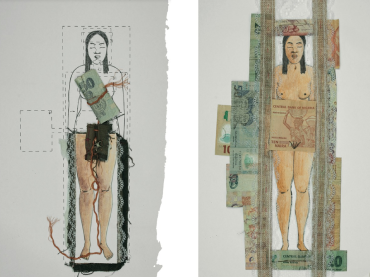
-
Saturday, 18 June 2022 Sabatini Building, Auditorium and Garden
Archipelago 2022
The Material Conditions of Our Music
TicketsStarting from the image of the ship Ever Given stranded on the Suez Canal in 2021, the sixth edition of Archipelago reflected on the material questions that influence music, for instance the transportation of raw materials and goods and the importance of ports, colonial routes and ocean currents, in addition to forced migrations. Through a string of concerts fusing traditional music and experimentation, Archipelago recapitulated, reinterpreted and overhauled learning related to the common history of traditional music to date.
Participants: Erkizia + Cantizano, Edna Martinez, Pujllay Masis, Mazaher and Mohammad Reza Mortazavi.
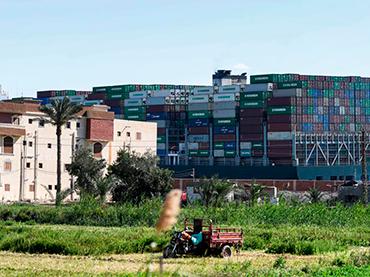
-
Tuesday, 21 June 2022 Nouvel Building, Floor 1, Room 104.06 and Room 104.07
Free Unions. Searching for a Place
Activities on the Collection
RegistrationFree Unions is a series of events, tours and activations in the rooms of Communicating Vessels. Collection 1881–2021, the new presentation of the Museo Reina Sofía Collection. This edition activates Room 104.06. Luis Camnitzer: Puerto Montt Massacre, 1969 and Room 104.07. A Map Is Not a Place. Via Grupo Cultural Yuyachkani, active since 1971 in Peru, fragments of the collective’s artistic repertoire are set in relation to the memories formalised by other artists who have confronted similar political or social situations.
Organised by: Museo Reina Sofía

-
From 21 to 25 June 2022 Nouvel Building and Online platform
The Expanded Theatricalities Chair
Yuyachkani (I Am Thinking, I Am Remembering), Memories in Action
The Expanded Theatricalities Chair analyses the thought inhabiting stage and performance practice. This second edition presents the artistic and political pathway taken by Grupo Cultural Yuyachkani. The programme gets under way with a performance action by Yuyachkani in the rooms of the Museo Reina Sofía Collection, framed inside the programme Free Unions, and continues with sessions focused on the archive of the group’s output across fifty years and on their work with the Truth and Reconciliation Commission. Moreover, one of the sessions converses with the Aníbal Quijano Chair.
Curator: ARTEA
Organised by: Museo Reina Sofía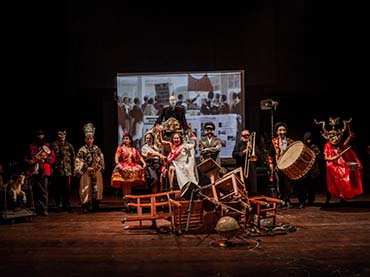
-
From 22 to 25 June 2022
The Aníbal Quijano Chair
Is Feminism with Patriarchal Episteme Possible?
The Aníbal Quijano Chair opens a channel of collective reflection-action, incorporating it into the multiple viewpoints that today find colonial modernity stripped of its primeval promises. This 2022 edition centres on examining the patriarchal epistome that becomes present in inquisitorial feminism and debates around transfeminisms. The programme starts with a seminar in which Rita Segato participates alongside local transfeminist activists, continues with a conversation between Teresa Ralli, a founder and member of Grupo Cultural Yuyachkani, and Rita Segato to set up a dialogue with the Expanded Theatricalities Chair, and ends with a public lecture by Segato.
Curators: Elisa Fuenzalida and Rita Segato
Organised by: Museo Reina Sofía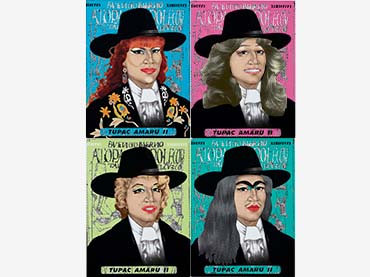
-
Monday, 27 June 2022 Nouvel Building, Auditorium 200
Art and Tourism Imaginaries IV
The Tourist City. Utopia and Dystopia
TicketsWhat desires did tourist cities have to arouse in their permanent or temporary residents? What were the architecture of pleasure promises and what pain did they open the way for? What dystopias have we inherited from the tourist utopias of the 1970s? These are the questions anchoring a session run by the research group TURICOM. The edition starts with four lectures by Eugenia Afinoguénova, Cristina Arribas, Julián Díaz Sánchez and Ramón Vicente Díaz del Campo Martín-Mantero, before moving on to a conversation between Antoni Miralda and Jordi Costa, and ending with a final debate moderated by Germán Labrador Méndez, director of the Museo Reina Sofía’s Public Activities Department.
Organised by: Museo Reina Sofía and the inter-university research group TURICOM. The Tourist Experience: Image, Body and Death
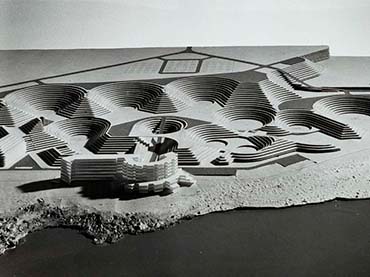
-
From 30 June to 2 July 2022 Casa Central from the University of Chile, Museo de Arte Contemporáneo (Chile), Museo de la Memoria y de los Derechos Humanos (Chile) and online platform
The Chair of Situated Thought
De-Constituent: Practices and Imaginaries to Come
Thursday 30 - Online platformThe Chair of Situated Thought seeks to propel spaces of dialogue and transmission and bring together intellectual practices on different fronts that have been emerging in Latin America. The programme places the situation extending across Chile since 2019 in dialogue, and confrontation, with other Latin American contexts, focusing on the tension between social control and revolts or social flare-ups inside the context of the COVID-19 pandemic. It also looks to grant visibility to present-day tensions and contradictions in the constituent exercise of political imagination that joins critical thought, activisms and artistic practices.
Curators: Ileana Diéguez and Ana Longoni
Organised by: Museo Reina Sofía and Universidad Autónoma Metropolitana (Campus Cuajimalpa, Mexico)
Collaboration: Universidad de Chile, Museo de Arte Contemporáneo (Chile) and Museo de la Memoria y de los Derechos Humanos (Chile)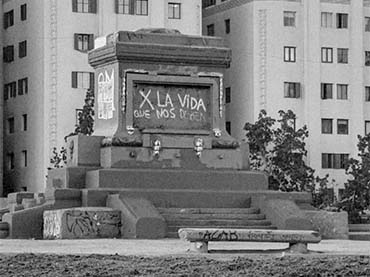
-
Episode 2. The Lost Thought Sabatini Building, Floor 4
Stateless and Natural People. Room 407
The issue of exile cannot be separated from the history of relations between Spain and Latin America, from the spectres of colony and empire. Yet exiles also enable other relationships between Spanishness and Latin Americaness to be imagined. The pieces in this room demonstrate how, for many exiles, diaspora represents a chance to question the national, historical and racial categories upon which the discourse of Hispanic identity and its origins were based. It explores a “tertiary identity”, if we return to the theory of “three Spains” with which Américo Castro revolutionised Spanish historiography. In it, when the exiled subject did not dream of being a conquistador or give themselves over to anomie, solidarity and empathy towards the earth’s condemned can be rediscovered due to their condition of being subordinate and dispossessed. Many Spanish Republicans learned to see themselves as stateless upon documenting the exclusion of Blackness and Indigenousness practiced in their societies of integration, or projected their own experience on the forms of syncretism and the resistance of these communities.
-
Episode 4. Double Exhibition: Art and Cold War Sabatini Building, Floor 4
… And Colonials, 2021. Room 422
Spain’s colonies were already scarce in the years of major European decolonisation, yet Francoism had turned the glorification of Hispanic imperial feats into one of the basic cornerstones of its rhetorical pomp. Therefore, the official propaganda in the 1950s and 1960s hammered home the representation of scenes underscoring the need to act as guardians of the colonised population, backed by “scientific” research conducted by the Institute of African Studies (IDEA), from the Spanish National Research Council (CSIC), into “the mental capacity of the black man”. Even so, the pieces in this room show how the greatest defence of a colonial world view could be carried out in a more grid-like and vague way in the fabric of daily life and the emerging consumer society: in advertising “foreign” products, in books, comics and collections of adventure stickers, and even the development of the slave monkey illustrating the first tins of Cola Cao.
-
Episode 7. Apparatus ‘92. Can History Be Rewound? Sabatini Building, Floor 0
Apparatus ‘92. Can History Be Rewound? Rooms 002.01 to 002.22
Expo ’92 in Seville, an event conceived to celebrate Spain’s definitive entry into modernity, revealed more sharply the light and darkness of the Iberian colonial legacy. Drawing from this event, Rooms 002.01 to 002.22 question the intrinsic relationship between conquest and violence, and contain spaces and themes which chime with the concept of “rebel land” articulating this fourth TIZ, for instance: the critical reinterpretation of the fifth centenary offered by Room 002.06; the question around modern-day Potosí cities in Room 002.08; the memory of the consequences of the 1884 Berlin Conference in Room 002.09; and the question concerning a “potential history” in relation to the colonial cultural pillaging offered by Ariella Aïsha Azoulay’s film Un-documented. Undoing Imperial Plunder in Room 002.18
-
Until 5 September 2022 Sabatini Building, Floor 3, Vaults Room and Garden
< Garden of Mixtures: Attempts to Make Place, 1995 -… >
Alejandra Riera
TicketsAn exhibition devoted to the work of Alejandra Riera which assays the poetic modes of making place through a recurring image in her practice: a collective canvas, which for this occasion takes the form of a garden in movement. Beyond a retrospective, the exhibition seeks to experiment with the “how” of poetically renewing via a unique and shared experience, gestures and questionings which emerge from the archives of “lieuxdétudes” (places of studies) started by the artist almost three decades ago and unfurled here. The result of individual effort and long-term commitment, these Lieuxdétudes build and sustain affective and sensitive settings, spaces for interrogation and collective breathing.
Organised by: Museo Reina Sofía
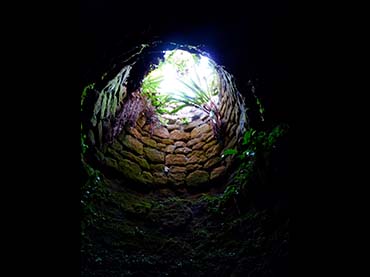
-
18 May - 10 October 2022 Sabatini Building, Floor 3
Graphic Turn
Like the Ivy on a Wall
TicketsGraphic Turn. Like the Ivy on a Wall is the outcome of a long collective research process conducted by the Southern Conceptualisms Network, in collaboration with the Museo Reina Sofía. The exhibition puts forward a survey of graphic art initiatives which have, from the 1960s to the present day, confronted urgent, politically oppressive contexts in Latin America, articulating strategies of transformation and resistance that radically changed art-making, the way in which it established intersubjective links, built communities, and even circulated graphic supports.
Curator: Southern Conceptualisms Network
Organised by: Museo Reina Sofía
With the support of: Embassy of the Argentine Republic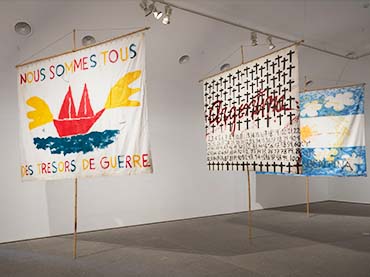
Más actividades

Difficulty. Forms and Political Effects of Deviation in Writing and Contemporary Art
23 February – 14 December 2026 – Check programme
Difficulty. Forms and Political Effects of Deviation in Writing and Contemporary Art is a study group aligned towards thinking about how certain contemporary artistic and cultural practices resist the referentiality that dominates the logics of production and the consumption of present-day art. At the centre of this proposal are the concepts of difficulty and deviation, under which it brings together any procedure capable of preventing artistic forms from being absorbed by a meaning that appears previous to and independent from its expression. By ensuring the perceptibility of their languages, difficulty invites us to think of meaning as the effect of a signifying tension; that is, as a productive and creative activity which, from the materiality of art objects, frees aesthetic experience from the representational mandate and those who participate in it from the passiveness associated with tasks of mimesis and decoding.
The economy of the referential norm translates the social logic of capitalism, where insidious forms of capturing subjectivity and meaning operate. In the early 1980s, and adopting a Marxist framework, poet Ron Silliman highlighted how this logic entailed separating language from any mark, gesture, script, form or syntax that might link it to the conditions of its production, rendering it fetichised (as if without a subject) and alienating its users in a use for which they are not responsible. This double dispossession encodes the political strategy of referential objectivity: with no subject and no trace of its own consistency, language is merely an object, that reality in which it disappears.
The political uses of referentiality, more sophisticated today than ever before, sustain the neoliberal-extractivist phase of capitalism that crosses through present-day societies politically, economically and aesthetically. Against them, fugitive artistic practices emerge which, drawing from Black and Queer studies and other subaltern critical positions, reject the objective limits of what exists, invent forms to name what lies outside what has already been named, and return to subjects the capacity to participate in processes of emission and interpretation.
Read from the standpoint of artistic work, the objective capture of referentiality may be called transparency. Viewed from a social contract that reproduces inequality in fixed identity positions, transparent in this objectivity are, precisely, the discourses that maintain the status quo of domination. Opposite the inferno of these discourses, this group aims to collectively explore, through deviant or fugitive works, the paradise of language that Monique Wittig encountered in the estranged practices of literature. For the political potency of difficulty — that is, its contribution to the utopia of a free language among equals — depends on making visible, first, its own deviations; from there, the norm that those deviations transgress; and finally, the narrowness of a norm which in no way exhausts the possibilities ofsaying, signifying, referring and producing a world.
From this denouncement of referential alienation, fetishisation and capture, Difficulty. Forms and Political Effects of Deviation in Writing and Contemporary Art turns its attention to the strategies of resistance deployed by contemporary artists and poets. Its interest is directed towards proposals as evidently difficult or evasive as those of Gertrude Stein, Lyn Hejinian, Theresa Hak Kyung Cha, Kameelah Janan Rasheed, Kathy Acker, María Salgado and Ricardo Carreira, and as seemingly simple as those of Fernanda Laguna, Felix Gonzalez Torres and Cecilia Vicuña, among other examples that can be added according to the desires and dynamics of the group.
The ten study group sessions, held between February and December, combine theoretical seminars, work with artworks from the Museo Reina Sofía’s Collections and exhibitions, reading workshops and public programs. All these formats serve as spaces of encounter to think commonly about certain problems of poetics — that is, certain political questions — of contemporary writing and art.
Difficulty. Forms and Political Effects of Deviation in Writing and Contemporary Art inaugurates the research line Goodbye, Representation, through which the Museo Reina Sofía’s Studies Directorship seeks to explore the emergence of contemporary artistic and cultural practices which move away from representation as a dominant aesthetic-political strategy and redirect their attention toward artistic languages that question the tendency to point, name and fix, advocating instead for fugitive aesthetics. Over its three-year duration, this research line materializes in study groups, seminars, screenings and other forms of public programming.

CLINIC 2628. A Community of Writing and Research in the Arts
February – October 2026
Clinic 2628 is a project which supports and brings together writings which stem from the intention to offer a space and sustainable time for research work in art and culture. Framed within an academic context which is increasingly less receptive to the forms in which thinking happens and is expressed, the aim is to rescue the academic from its neoliberal trappings and thus recover the alliance between precision and intuition, work and desire. A further goal is to return writing to a commons which makes this possible through the monitoring of processes and the collectivisation of ideas, stances, references and strategies.
The endeavour, rooted in a collaboration between the Museo Reina Sofía’s Studies Directorship and the Artea research group, via the i+D Experimenta project, is shaped by three annual editions conceived as spaces of experimentation, discussion and a demonstration of writings critical of what is put forward by today’s academia.
What forces, forms and processes are at play when writing about art and aesthetics? In academia, in museums and in other cultural institutions, the practice of writing is traversed by productivist logics which jeopardise rhythms of research and experimentation. The imposition of both scientism inherent in the structure of “the paper” and the quantifying of results which demand a criterion of quality and visibility sterilise and smoothen, from the outset, the coarseness that is particular to writing understood from the concrete part of language: phonic, graphic, syntactic and grammatical resistance connecting the language user to the community the language unites and activates. They also sterilise the roughness enmeshed in the same desire to write, the intuitive, clear and confusing pathways that once again connect the writer to those reading and writing, participating in a common good that is at once discovered and produced.
The progressive commercialisation of knowledge propelled by cognitive capitalism moves further away from the research and production of knowledge in artworks and artistic languages and practices. The work of curators and archive, criticism, performances and essays formerly saw a horizon of formal and emotional possibilities, of imagination that was much broader when not developed in circumstances of competition, indexing and impact. Today, would it be possible to regain, critically not nostalgically, these ways; namely, recovering by forms, and by written forms, the proximity between art thinking and its objects? How to write in another way, to another rhythm, with no more demands than those with which an artwork moves towards different ways of seeing, reading and being in the world?

Cultural Work
Thursday, 12 February 2026 – 5:30pm
This series is organised by equipoMotor, a group of teenagers, young people and older people who have participated in the Museo Reina Sofía’s previous community education projects, and is structured around four themed blocks that pivot on the monstrous.
Session number two looks to approach film as a place from which cultural work is made visible and processes of production engage in dialogue with artistic creation. From this premise, the session focuses on exploring how audiovisual content is produced, assembled and distributed, from the hands that handle the images to the bodies that participate in its circulation. The aim is to reflect on the invisible effort, precarity and forms of collaboration that uphold cultural life, that transform the filmic experience into an act that recognises and cares for common work.

Alberto Greco. Viva el arte vivo
Tuesday, 10 February 2026 – 7pm
In conjunction with the opening of the exhibition Alberto Greco. Viva el arte vivo, Fernando Davis, the show’s curator, and Amanda de la Garza, the Museo Reina Sofía’s deputy artist director, will converse in the Nouvel Building’s Auditorium 400 on the life and work of the Argentinian artist, a core figure in experimental avant-garde art.
The title of both exhibition and conversation originates from the proclamation “Long Live Arte Vivo” Alberto Greco (Buenos Aires, 1931— Barcelona, 1965) disseminated around the streets and on the walls of Rome. For Greco, arte vivo was an art of the future, an art based on a set of irreverent and untimely gestures, of adventures open to unpredictability melding with life, and which began in 1962, prior to his coining of the term “vivo-dito”. In his Manifiesto dito dell´arte vivo (Dito Arte-Vivo Manifesto), which he pasted on the walls of Genoa, Greco encouraged new contact “with the living elements of our reality: movement, time, people, conversations, smells, rumours, places, situations”. He would also burst into the everyday of Madrid’s streets as he convened a “vivo-dito moment”, culminating in the burning of a canvas painted collectively in Madrid’s Lavapiés neighbourhood.
In addition to founding arte vivo, Alberto Greco was an informalist painter, a queer flâneur, a poet and sometime actor. This intense journey of Greco’s life and art is closely connected to the migrant route he embarked upon in 1950 in Buenos Aires, taking in Atacama and Humahuaca, Paris, Rio de Janeiro, São Paulo, Genoa, Rome, Madrid, Piedralaves, New York and Ibiza and ending abruptly in Barcelona, where he took his own life shortly after writing his final great work, the novel Besos brujos (Bewitching Kisses, 1965).
These inaugural conversations, part of the main working strands of the Museo’s Public Programmes Area, aim to explore in greater depth the exhibition narratives of the shows organised by the Museo from the perspective of artists, curators and specialists.
![Basel Abbas y Ruanne Abou-Rahme, At Those Terrifying Frontiers Where the Existence and Disappearance of People Fade Into Each Other [En esas fronteras aterradoras donde la existencia y la desaparición de personas se disuelven entre sí], 2019](https://recursos.museoreinasofia.es/styles/small_landscape/public/Colecci%C3%B3n/abbasabourahme.png.webp)
Gaza and Aestheticide
Tuesday February 10, 2026 – 16:00 h
“This seminar examines the systematic destruction of Palestinian collective sensibility — what we might call ‛aestheticide’ — that has accompanied Israel’s genocide and ecocide in Gaza, and considers the conditions of artistic practice in its aftermath. Over more than two years, the demolition of universities, archives, museums, and libraries has not only erased cultural and intellectual infrastructure but has also targeted the very possibility of representation itself. The destruction of a people has been accompanied by the destruction of their image, their history, and their capacity to be known: reportage, scholarship, and cultural memory have been deliberately undermined, with media institutions, universities, and museums often complicit in this repression. Gaza consequently functions as a rehearsal space for a possible global future — of fascism, post-liberal authoritarianism, militarized borders, and AI-enabled warfare —, a laboratory for an emerging world order. What, then, becomes of critical analysis and resistance under these conditions? And what becomes of aesthetics and politics?”
—T.J. DemosThis seminar takes place thanks to the art historian’s invitation to Spain by the Miró Foundation. In the context of the museum, it engages in dialogue with a broader line of work on the climate emergency and decolonial perspectives developed within the Museum of the Commons project (2023–2026) of the L’Internationale network, of which the Museo Reina Sofía is a member; as well as with some of the questions that animate the study group Aesthetics of Peace and Desertion Tactics. Finally, it is also embedded in a wider strategy of support for and commitment to the artistic and discursive practices of Palestinian artists and cultural practitioners, most clearly reflected in the TEJA network.